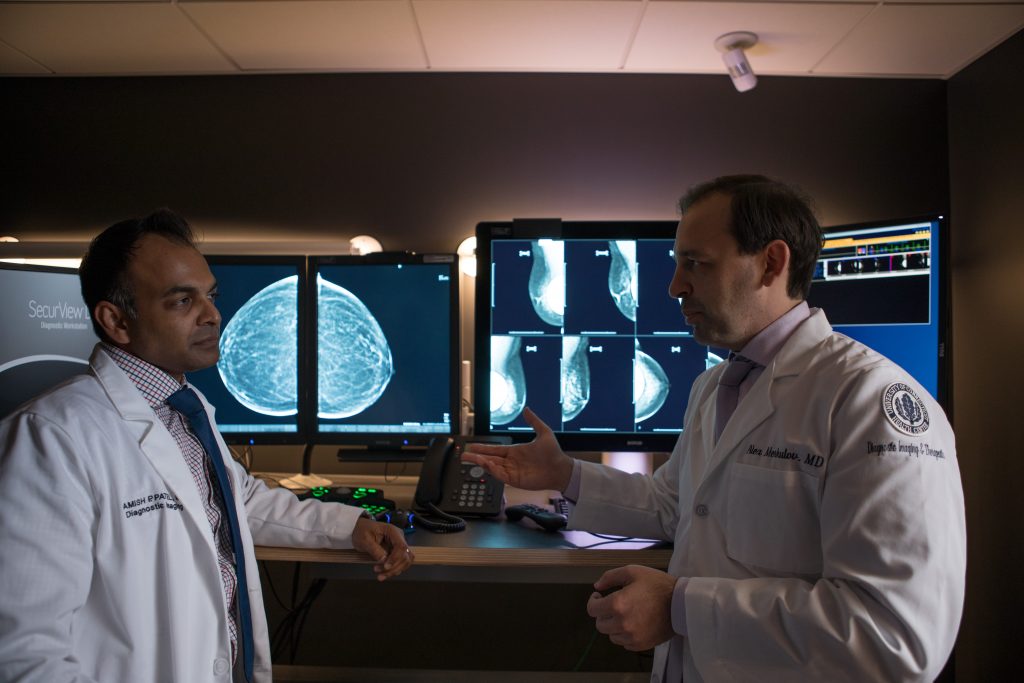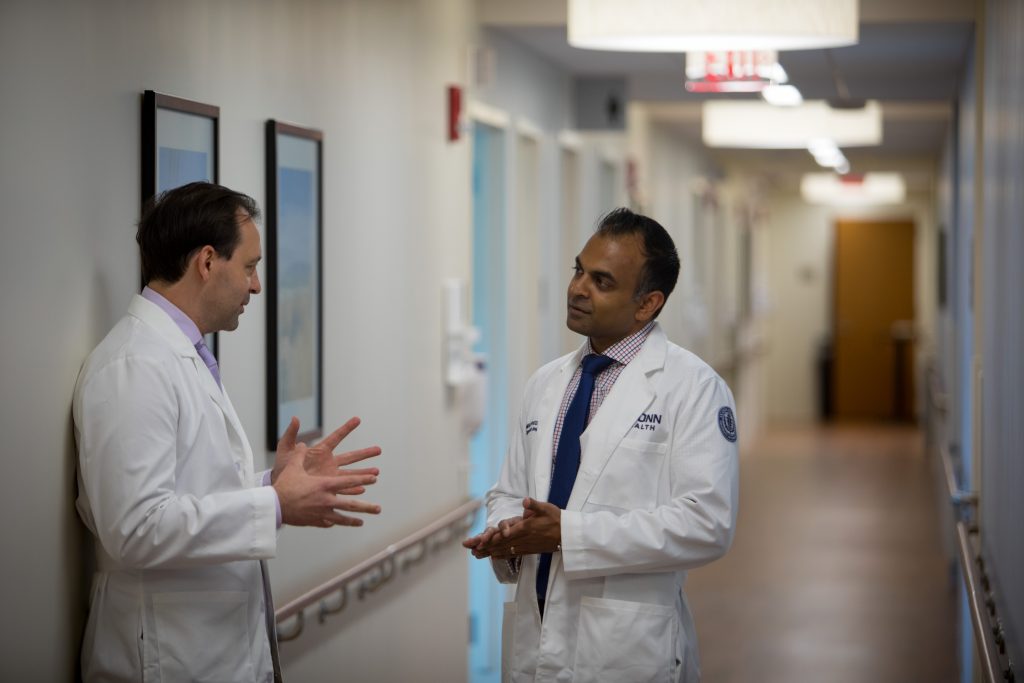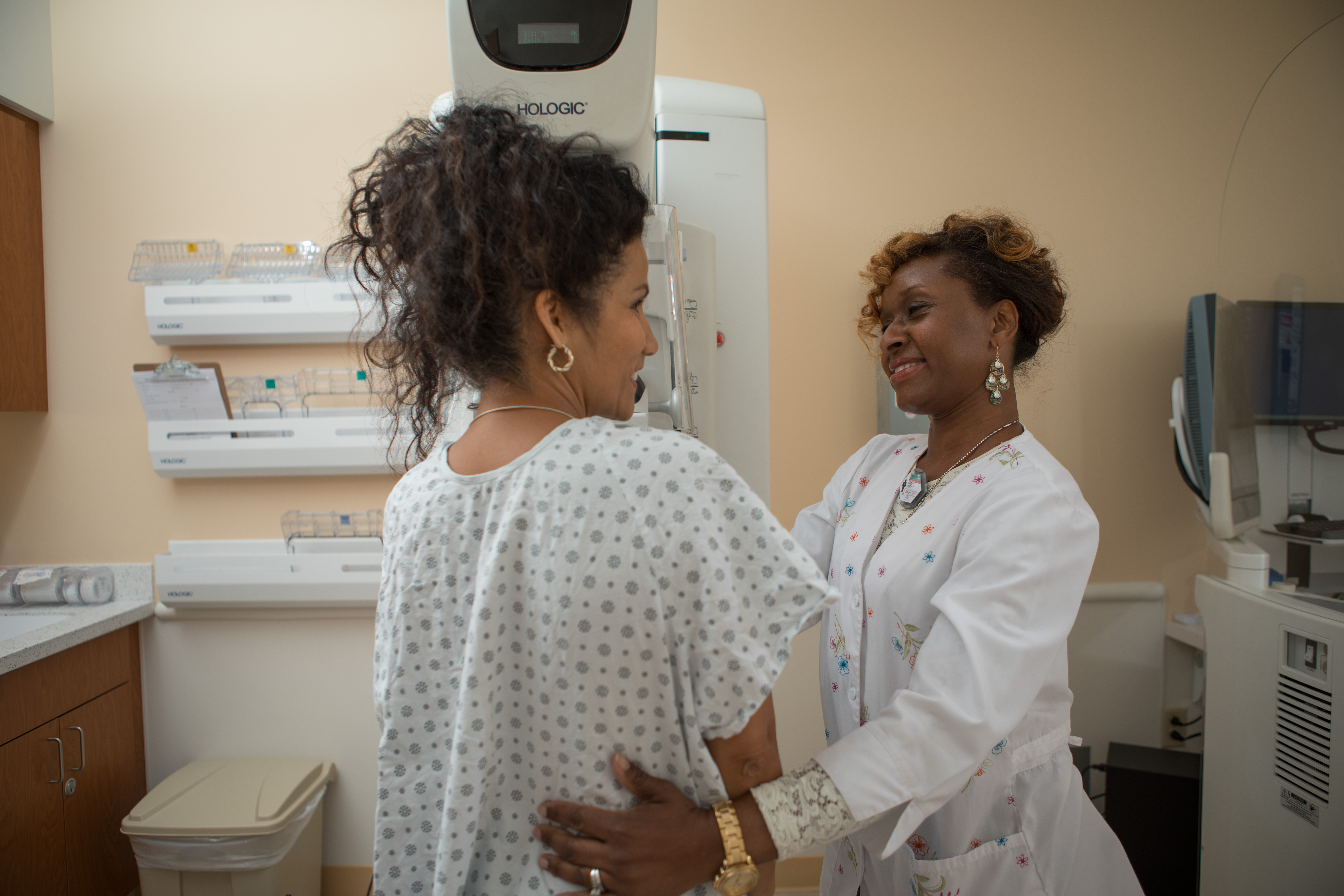
Radiologists at UConn’s new imaging facility are taking the wait and worry out of breast cancer screening by offering patients the option to receive same-day results.
Studies have shown that if a woman has to wait more than four days for her results she can be more prone to experience high-levels of stress that may lead to a post-traumatic stress type experience – even if in the end her doctors share with her a clean bill of health.
“Our goal is to get each woman their screening results in 15 minutes,” says Dr. Alex Merkulov, associate professor of radiology and head of women’s imaging at UConn Health. “We need to make it easier for women to get their breast cancer screening and to reduce their anxiety about the results.”
Merkulov and Dr. Amish Patel, the first graduate of the breast imaging fellowship at UConn School of Medicine and director of women’s imaging at the Beekley Imaging Center, will both be performing traditional and advanced breast cancer screening at the new Beekley Center in the Outpatient Pavilion at UConn Health.
Our goal is to get each woman their screening results in 15 minutes. — Dr. Alex Merkulov
The center has two advanced 3-D mammogram machines offering the precisest and clearest images of the breast at the lowest possible doses of radiation. In addition, the center offers breast ultrasound imaging, all breast interventions, and personalized patient care.
For dense breast tissue – common in up to 75 percent of women – which may be challenging to image, the center has a special 3-D automated ultrasound technology called SOFIA.
A patient will be able to lay down on her stomach on the machine’s cushioned table and have both of her breasts fully scanned in less than 10 minutes by the machine’s ultrasound waves. The new technology eliminates the possibility of human error because it does not involve a technician using a handheld ultrasound. And radiologists can view the patient’s breast images on the technology’s software in 2-D, 3-D, or other enhanced magnified views all within 2 minutes. Also, there is no radiation involved in the new-age ultrasound scan, or breast compression such as in a traditional mammogram.

“To date, the only effective method of dealing with breast cancer is routine screening and early detection,” said Merkulov. “We are at the forefront of screening here at UConn Health.”
Any woman with an abnormal result proceeds seamlessly and rapidly to follow-up testing and care coordinated by UConn’s Breast Nurse Navigator. Access to consultations with the breast surgery or oncology teams will be available in the same location or at the Outpatient Pavilion building.
At UConn Health’s Beekley Imaging Center, doctors will be using questionnaires to track patients’ experiences in regard to the delivery of results and follow-up testing, in order to gauge and continue to improve the overall patient experience. In addition, Merkulov and his team will be doing follow-up research comparing the effectiveness of the automated ultrasound technology versus the traditional hand-held ultrasound. They will also be testing the effectiveness of using an abbreviated five-minute MRI scan to confirm or rule out a breast cancer diagnosis, instead of the 20-minute test.
“It doesn’t matter whether you had cancer or not in the past – breast screening is anxiety-provoking. It may be a reason why some women choose not to come,” says Dr. Susan Tannenbaum, breast cancer specialist and chief of the Division of Hematology/Oncology at UConn Health’s Carole and Ray Neag Comprehensive Cancer Center. “We hope by offering same-day results, this could bring much relief to our patients.”



